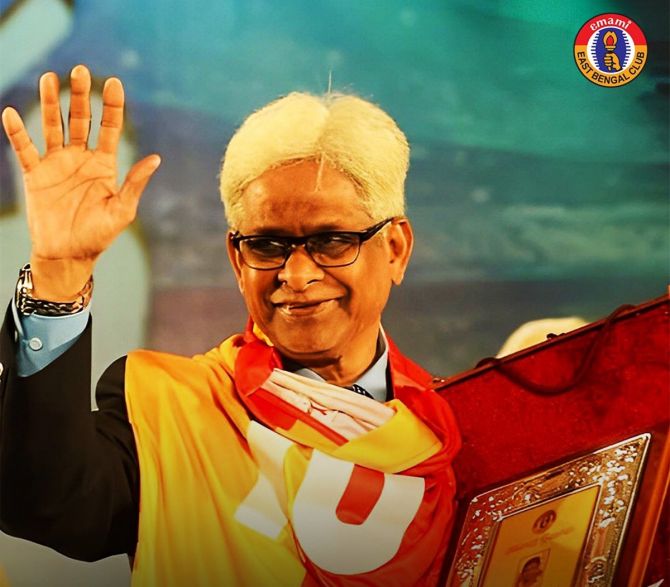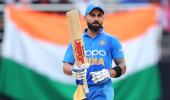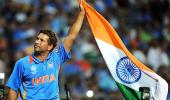
Mohammed Habib, the playmaker par excellence of the 1970s who scored against Pele's New York Cosmos in Mohun Bagan colours and made the football icon take note of his game, died on Tuesday.
The former India player was 74.
Habib, who was suffering from dementia and Parkinson's syndrome for the past couple of years, breathed his last in Hyderabad, his birthplace.
Habib is survived by his wife and three daughters.
A bronze medallist in the 1970 Asian Games in Bangkok under the captaincy of fellow Hyderabadi Syed Nayeemuddin and manager PK Banerjee, Habib has represented the big three of Kolkata Maidan -- Mohun Bagan, East Bengal and Mohammedan Sporting in his heydays, dominating the Mecca of Indian football for a prolonged period in the late 1960s through to the 70s.
Born on July 17, 1949, the former India captain represented the country in 35 international matches, and scored 11 goals in the process, after making his debut against Thailand in the Merdeka Cup at Kuala Lumpur in 1967.
Following a successful career that saw him gain legendary status and earn the tag of the country's first "true professional" footballer for his refusal to accept numerous job offers that came his way owing to his on-field heroics, Habib took to coaching at the Tata Football Academy (TFA).
Later, he also acted as chief coach of the Indian Football Association academy in Haldia.
At a time when the clubs would pay meagre sum to their best players, he was unruffled and remained a professional in true sense throughout his career, for he considered playing football as his real and only profession.
One of the highlights of Habib's career was when he played for Mohun Bagan against the visiting Cosmos Club which also featured the legendary Pele in 1977 in a friendly on a rain-soaked Eden Gardens.
Up against a visiting team that had a star-studded line up with big names like Pele, Carlos Alberto, Georgio Chinaglia and others in its ranks, Mohun Bagan held their own in a creditable 2-2 draw with midfield mainstay Habib being one of the scorers.
In one of his biggest acknowledgments, Habib was singled out by Pele after the match as one of the world's greatest player praised his game.
Habib etched his name in the folklore of Indian football in 1970, when he played an integral part in the Blue Tigers' bronze medal-winning run in the Asian Games.
He followed that up by helping India become the joint winners of the Pesta Sukan Cup with South Vietnam in 1971. Habib played international football till 1975, and was conferred the Arjuna Award for his contribution to the game.
Expressing his condolences, All India Football Federation (AIFF) president Kalyan Chaubey said, "The 'Bade Miya' of Kolkata football was my coach and mentor in TFA and Mohun Bagan. His contribution to India's bronze medal-winning team in the 1970 Asian Games will be remembered forever. May his soul rest in peace."
AIFF secretary general Shaji Prabhakaran said, "Mohammed Habib was one of the finest footballers of his time, and remained dedicated to the game throughout his life. I am deeply saddened by his passing away."
On the domestic front, Habib switched over from Hyderabad to Kolkata in 1966 when he joined East Bengal. For the next 18 seasons, he played for all the three top Kolkata clubs with distinction and soon grew into a legend of Indian football.
His grit, determination and never-say-die attitude on the field inspired his contemporaries as well as generations of footballers.
Always considered a big-match footballer, Habib always shone when it was needed most. He had the rare distinction of scoring the winning goals in three Durand Cup finals in the span of seven seasons for East Bengal.
Habib was one of the few players to win the Triple Crown (IFA Shield, Durand Cup and Rovers Cup) in the same season for both East Bengal and Mohun Bagan in 1972 and 1977, respectively.












 © 2025
© 2025